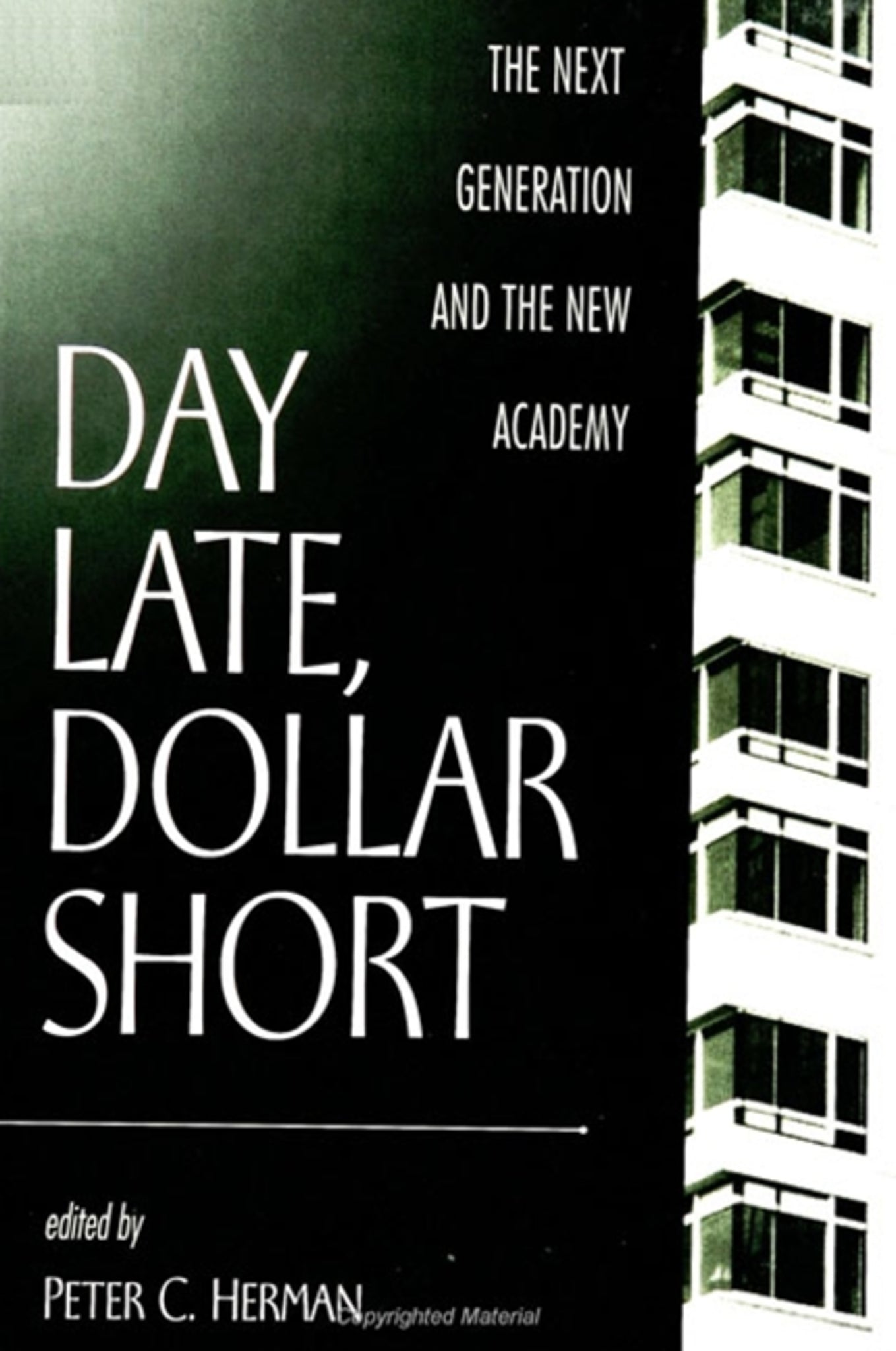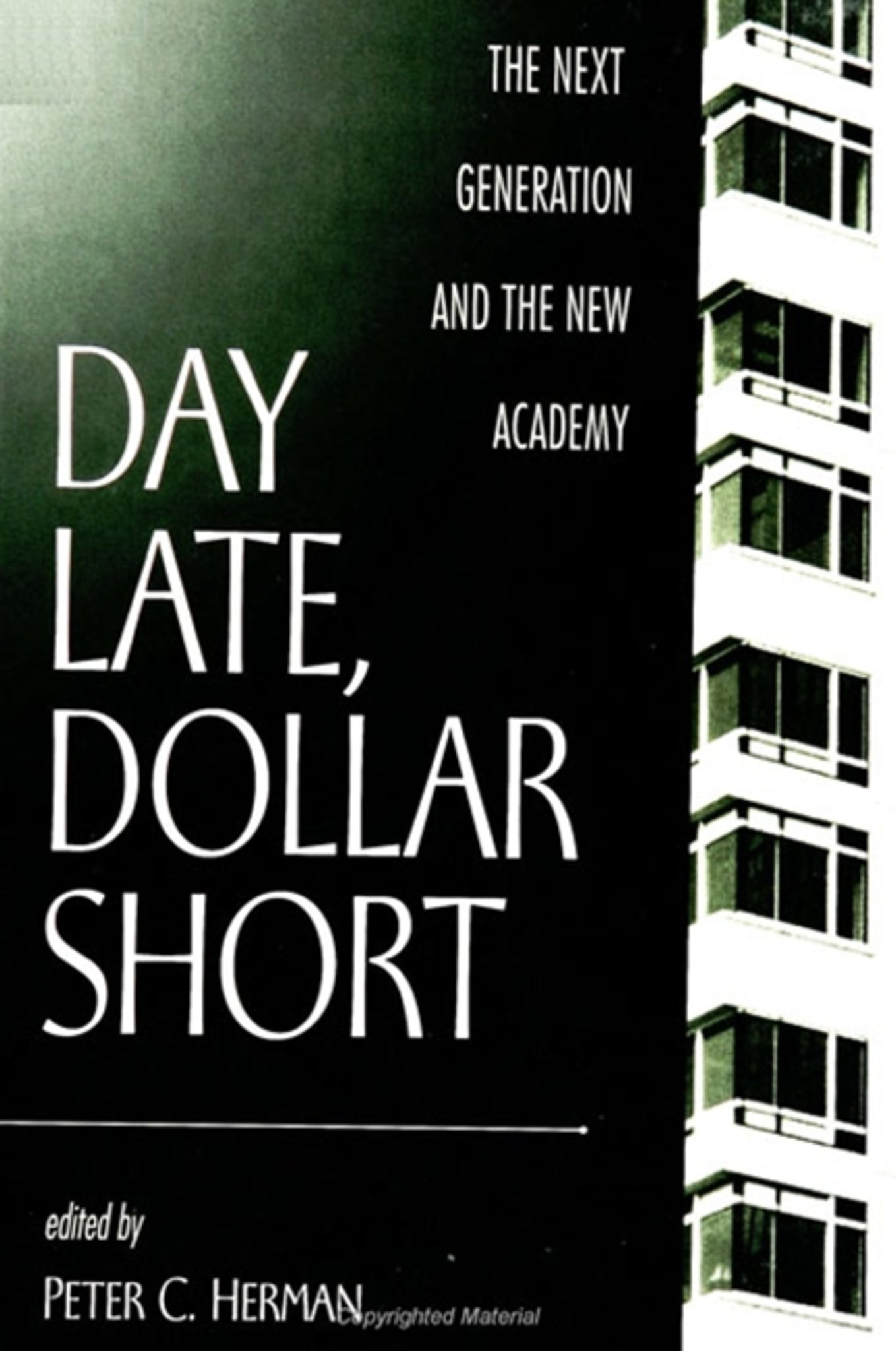We're sorry. An error has occurred
Please cancel or retry.
Day Late, Dollar Short

Some error occured while loading the Quick View. Please close the Quick View and try reloading the page.
Couldn't load pickup availability
- Format:
-
24 August 2000

Explores how shifts in the job market and changes in university culture and administration have influenced the "post-theory" generation of literary critics.
This book explores how recent changes in university culture and administration have affected and will continue to affect the "next generation" of literary critics. How have these recent shifts in material conditions inflected the criticism, sense of the profession, and modes of scholarship of this next generation? If the sixties produced "Theory," then what have the eighties and nineties produced? How has the corporatization of the academy affected hiring practices, and how will it shape the careers of those hired? What will be the impact of computers, the internet, and the various proposed "virtual" universities? In addressing these and other questions, the book marks a profound moment of institutional crisis, and will serve as a resource to all who are concerned with the future direction of literary studies and of higher education in general.
Contributors include Crystal Bartolovich, Michael Berube, Jeffrey R. Di Leo, David Galef, Gerald Graff, Susan Johnston, Neil Larsen, Sharon O'Dair, Barbara Riebling, Jesse Swan, and Jeffrey Williams.


"Day Late, Dollar Short is a fine collection of timely essays by young literary theorists on the contemporary crisis and future challenges in the profession. One of the salient themes so often struck by several writers in this volume is that the ivory tower must reinvent itself and find a more public form. It is this book's most attractive claim that many of its contributors do indeed write in the voice of public intellectuals." — Amitava Kumar, editor of Poetics/Politics: Radical Aesthetics for the Classroom
"This book sends a clear and unimpeachable message: the conditions of academic life have changed for the worse in recent years, and there is now a significant cohort of new scholars and teachers attempting to carry out what they can of their work. We need a book like this, one that de-mystifies the demise of the traditional academic career, and that not only offers careful readings of the current scene but, from there, seeks new and realizable goals." — Mike Hill, University at Albany, State University of New YorkThis book explores how recent changes in university culture and administration have affected and will continue to affect the "next generation" of literary critics. How have these recent shifts in material conditions inflected the criticism, sense of the profession, and modes of scholarship of this next generation? If the sixties produced "Theory," then what have the eighties and nineties produced? How has the corporatization of the academy affected hiring practices, and how will it shape the careers of those hired? What will be the impact of computers, the internet, and the various proposed "virtual" universities? In addressing these and other questions, the book marks a profound moment of institutional crisis, and will serve as a resource to all who are concerned with the future direction of literary studies and of higher education in general.
Contributors include Crystal Bartolovich, Michael Berube, Jeffrey R. Di Leo, David Galef, Gerald Graff, Susan Johnston, Neil Larsen, Sharon O'Dair, Barbara Riebling, Jesse Swan, and Jeffrey Williams.
Acknowledgments
Introduction: '60s Theory/'90s Practice
Peter C. Herman
1. The Posttheory Generation
Jeffrey Williams
2. Stars, Tenure, and the Death of Ambition
Sharon O'Dair
3. Phantom Narratives: Travel, Jobs, and the Next Generation
Terry Caesar
4. To Boldly Go Where No MLA Has Gone Before
Crystal Bartolovich
5. "It's a Beastly Rough Crowd I Run With": Theory and the "New University"
Kali Tal
6. Breaking the Monopoly: The Next Generation and the Corporate Academy
Jesse G. Swan
7. New Technology and the Dilemmas of the Posttheory Generation: On the Use and Abuse of Computer and Information Technology in Higher Education Today
Jeffrey R. Di Leo
8. Theory after the "Theorists"?
Neil Larsen
9. Words, Words, Words
David Galef
10. Contextualizing Contexts: Cultural Studies, Theory, and the Profession—Past and Future
Barbara Riebling
11. After the Deluge: Rethinking Ethical Interpretive Claims
Susan Johnston
12. A Conversation with Gerald Graff
Peter C. Herman
13. Epilogue: Bringing You the Best Mix of Yesterday and Today
Michael Bérubé
Notes on Contributors
Index



